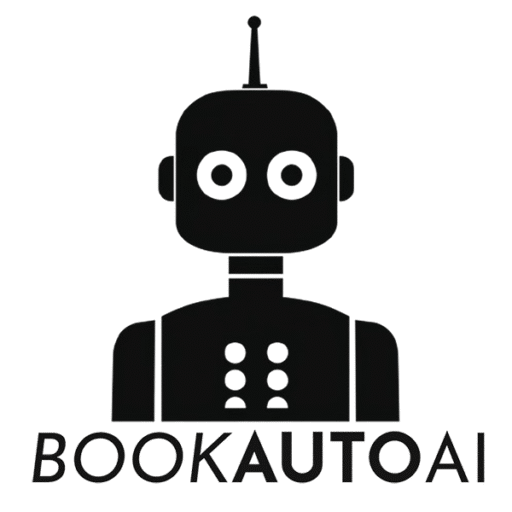
Are AI Story Generators Changing Novel Writing Forever
- by Lucas Lee
Are AI Story Generators the Ultimate Tool for Writing Novels? What’s the Verdict?
Estimated reading time: 5 minutes
- AI story generators assist in overcoming writer’s block.
- They aid in idea generation, character development, and dialogue crafting.
- AI boosts writing speed and enhances personalization for readers.
- However, AI lacks the narrative depth and originality of human authors.
Table of Contents
- Understanding AI Story Generators in Novel Writing
- The Rise of AI in Creative Writing
- Key Strengths of AI Story Generators
- Current Limitations and Challenges
- The Verdict: AI as an Assistant, Not an Auteur
- Practical Takeaways for Non-Fiction Authors and AI Book Writers
- How BookAutoAI Can Help You Write and Publish Faster
- Conclusion
Understanding AI Story Generators in Novel Writing
AI story generators are sophisticated algorithms designed to assist writers by generating text, ideas, dialogues, and even entire story frameworks. These tools use machine learning models trained on vast datasets of literature, enabling them to mimic human-like storytelling elements. They are increasingly popular among writers seeking inspiration, overcoming writer’s block, or streamlining parts of the creative process.
The Rise of AI in Creative Writing
The integration of AI into creative writing was initially met with skepticism. However, as these tools have improved, their potential to serve as drafting companions and brainstorming partners has become evident. Many authors and publishing professionals now view AI as a valuable asset in the early stages of book development.
Key Strengths of AI Story Generators
- Idea and Plot Generation: One of AI’s most notable capabilities is producing fresh ideas and plot structures. According to GrowthTribe, AI tools can supply surprising twists and dynamic story arcs, proving invaluable for overcoming writer’s block.
- Dialogue and Character Development: Modern AI systems can craft realistic dialogues and develop nuanced characters. When given high-quality prompts, AI can generate conversations that feel authentic and engaging.
- Speed and Efficiency: AI’s capacity to produce large volumes of text rapidly allows writers to experiment with different drafts more quickly than traditional methods.
- Personalization and Interactive Narratives: Some AI tools can tailor stories to specific genres or reader preferences, expanding opportunities for creating personalized books or interactive experiences.
Current Limitations and Challenges
- Narrative Coherence and Plot Depth: While AI can mimic story structures, it often struggles to maintain narrative coherence over extended texts, requiring substantial human editing.
- Originality and Artistic Merit: Although tools like NovelAI can produce engaging fiction, their output often repeats themes or ideas, limiting usefulness for full-length book projects.
- Dependence on Human Skill: AI works best when guided by knowledgeable writers, as effective use involves structured input and editing skills that require human judgment.
- Ethical and Legal Concerns: The use of AI in creative writing raises unresolved questions related to copyright and authorship, posing risks for authors and publishers.
The Verdict: AI as an Assistant, Not an Auteur
Based on current research and expert opinions, AI story generators are powerful tools for augmenting the creative process but are not capable of producing a complete, publishable novel independently. They serve as excellent brainstorming partners, drafting aids, and productivity boosters, allowing writers to experiment more freely and efficiently.
The prevailing consensus is that the “ultimate tool” for novel writing combines human creativity with AI assistance. As one industry expert points out, “AI story generators are challenging the role of authors, and there will be legal and ethical implications… Now AI is shaping the creative writing space.”
Practical Takeaways for Non-Fiction Authors and AI Book Writers
For authors of non-fiction, AI can be equally transformative. From generating book outlines to crafting engaging introductions, AI tools can streamline the writing process.
- Use AI to brainstorm ideas, structure chapters, and create compelling summaries.
- Generate drafts or outlines that serve as a foundation to enhance with your expertise.
- Optimize your manuscript to meet platform specifications effortlessly.
- Save time and effort to focus on content quality and marketing.
How BookAutoAI Can Help You Write and Publish Faster
At BookAutoAI.com, we specialize in providing AI-powered solutions tailored for authors. Our platform turns your ideas into ready-to-upload, fully formatted books in just a few clicks.
What sets us apart is our commitment to quality—our AI-generated books read naturally and pass AI detection tests at a price starting as low as $5 for a 30,000-word non-fiction book.
Ready to see how simple it is? Visit BookAutoAI.com and try our free demo today.
Conclusion
While AI story generators are reshaping creative writing, they are best used as tools for augmentation rather than replacement. They enhance productivity and creativity but still require human oversight.
If you’re an author or aspiring writer eager to harness AI’s potential, look no further than BookAutoAI. Our service empowers you to create high-quality, ready-to-publish books quickly and cost-effectively. Don’t miss the chance to revolutionize your writing process—try our free demo today!
FAQ
Are AI Story Generators the Ultimate Tool for Writing Novels? What’s the Verdict? Estimated reading time: 5 minutes AI story generators assist in overcoming writer’s block. They aid in idea generation, character development, and dialogue crafting. AI boosts writing speed and enhances personalization for readers. However, AI lacks the narrative depth and originality of human…
